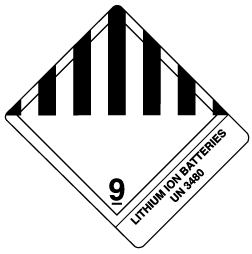Following an internal safety assessment, Qantas and Jetstar will no longer accept shipments of UN3480 lithium ion batteries. This restriction will take effect on 1 April 2015.

US-based United and Delta Airlines were the first to issue a blanket ban on lithium ion batteries shipments. The Qantas Group, together with Virgin Australia, were the latest airline companies to follow the similar moves to ban lithium ion batteries in both cargo and passenger aircrafts, to ensure the safety of the passengers and the vessels. Devices such as laptops, mobile phones, and tablets, which are powered by lithium batteries, can still be brought onboard as long as they are checked in as a carry-on luggage.
The group of airlines went beyond the regulations implemented by the International Air Transport Association, which have only restricted lithium ion batteries to cargo aircraft since January 2015. The International Civil Aviation Organisation is conducting series of tests that show the insufficiency of current cargo compartment fire protection systems. Although the protection system is certified by European and US regulations, it is unable to extinguish or suppress fires caused by lithium batteries.
The International Coordination Council for Aerospace Industry Association recommends establishing proper packaging and stricter shipping requirements to ensure the safety of cargo aircrafts carrying lithium ion batteries.
A spokesperson from Qantas said they have already updated their dangerous goods policy with their move on banning lithium ion batteries on both passenger and freighter aircraft. This decision was made after careful consideration and decision making on the company’s internal safety assessment. However, the company would allow shipment of the batteries if needed for emergencies, such as medical situations
Ed Bastian, president of Delta Airlines, said the ban didn’t affect the company’s profits. American Airlines also banned shipment of lithium ion batteries in bulk. However, they are allowing small packages if grouped or packed together in a single cargo container.
Virgin Australia Follows
Virgin Australia also said in their statement they prohibited carrying of lithium metal batteries that are packed separately to equipment back in March 2014 and that they have extended the prohibition to include lithium ion batteries starting March 31.
It can be recalled in 2014 that the US Federal Aviation Administration conducted tests showing that an overheating battery can cause short circuiting of nearby batteries. This causes a chain reaction and leads to a buildup of explosive gases. When ignition occurs, the strength of the explosion can blow off the cargo container’s door and result in a fire.


